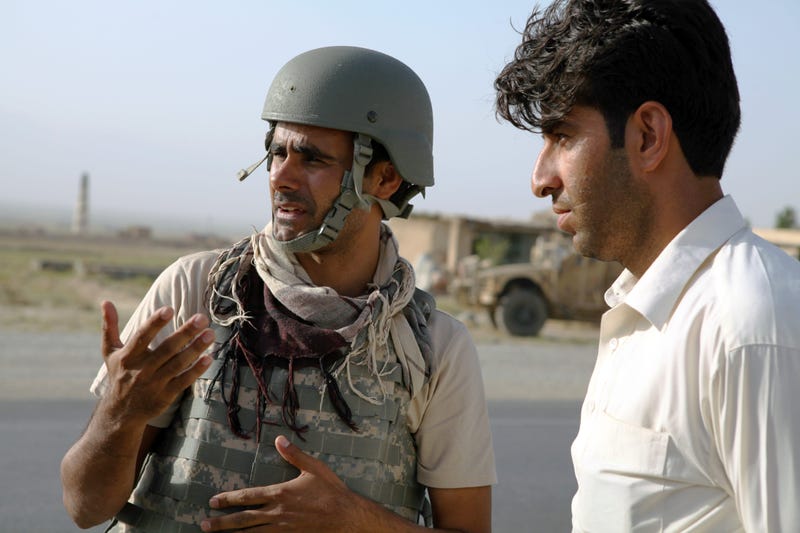
Just last month, the 2020 National Defense Authorization Act passed with 4,000 additional Special Immigrant Visas (SIV) for Afghan interpreters. But the process to obtain one of those visas takes time — and interpreters have less and less of that as tensions escalate.
The Special Immigrant Visa allows for former interpreters who offered at least 24-months of service to the U.S. military in combat the chance for a new life in America. Beyond that, the interpreters have to be recommended by U.S. service members and pass what Afghanistan veteran Matt Zeller calls the “gold standard” of background checks.
Matt Zeller had only been in Afghanistan for two weeks when his unit came under a Taliban ambush in April, 2018.
They helped US troops at war. Now he’s on a mission to save their lives.
“The next thing I know, I’m on the ground and being shot at,” Zeller told Connecting Vets. A rocket-propelled grenade had hit the side of his vehicle, ejecting him as bullets and mortars rained down on his position.
“I rolled on my back and saw an old Afghan man wearing old U.S. Army fatigues with ill-fitted body armor,” he says. “Who in the hell are you?” asks Zeller. “I’m Janis,” the man responds. “I’m one of your translators.”
Afghan translator Janis Shinwari fended off the Taliban attackers, saving Zeller's life. After their tour, it took more than four years for Zeller to help Shinwari gain a SIV — and through the process, they learned Shinwari was far from the only interpreter facing challenges.
Now, four years may be more time than interpreters in the Middle East have. Working with the U.S. military is often viewed as traitorous work and interpreters as well as their families can be unsafe remaining in their native countries.
“They’re looked down as traitors, and they’re hunted,” he says. “They’re often killed by the very people they helped us fight against.”
As tensions between the Middle East and the United States increase, these individuals and their families may find themselves in more and more danger.
More than one organization exists to assist interpreters seeking a SIV. In 2013, Zeller and Janis co-founded No One Left Behind, a nonprofit that helps war-time local interpreters who have stood shoulder-to-shoulder with American service members in combat move with their families to the U.S. As of 2019, NOLB assisted over 8,000 SIV-holders and family members with everything from SIV application guidance to emergency housing.
The Interpreting Freedom Foundation, founded by 14-year interpreter Zia Ghafoori, does similar work — providing financial support, guidance with SIV applications, and advocacy for the needs of interpreters to the government.
But as Trump calls for a full U.S. withdrawal from Afghanistan and the Taliban's threats escalate, interpreters may have less time than ever.
“When people talk about merit-based immigration, I can’t think of anything with more merit than saving an American’s life in combat, or serving with them in a war effort,” says Zeller. “I don’t know of any other merit that should come before that.”
—
